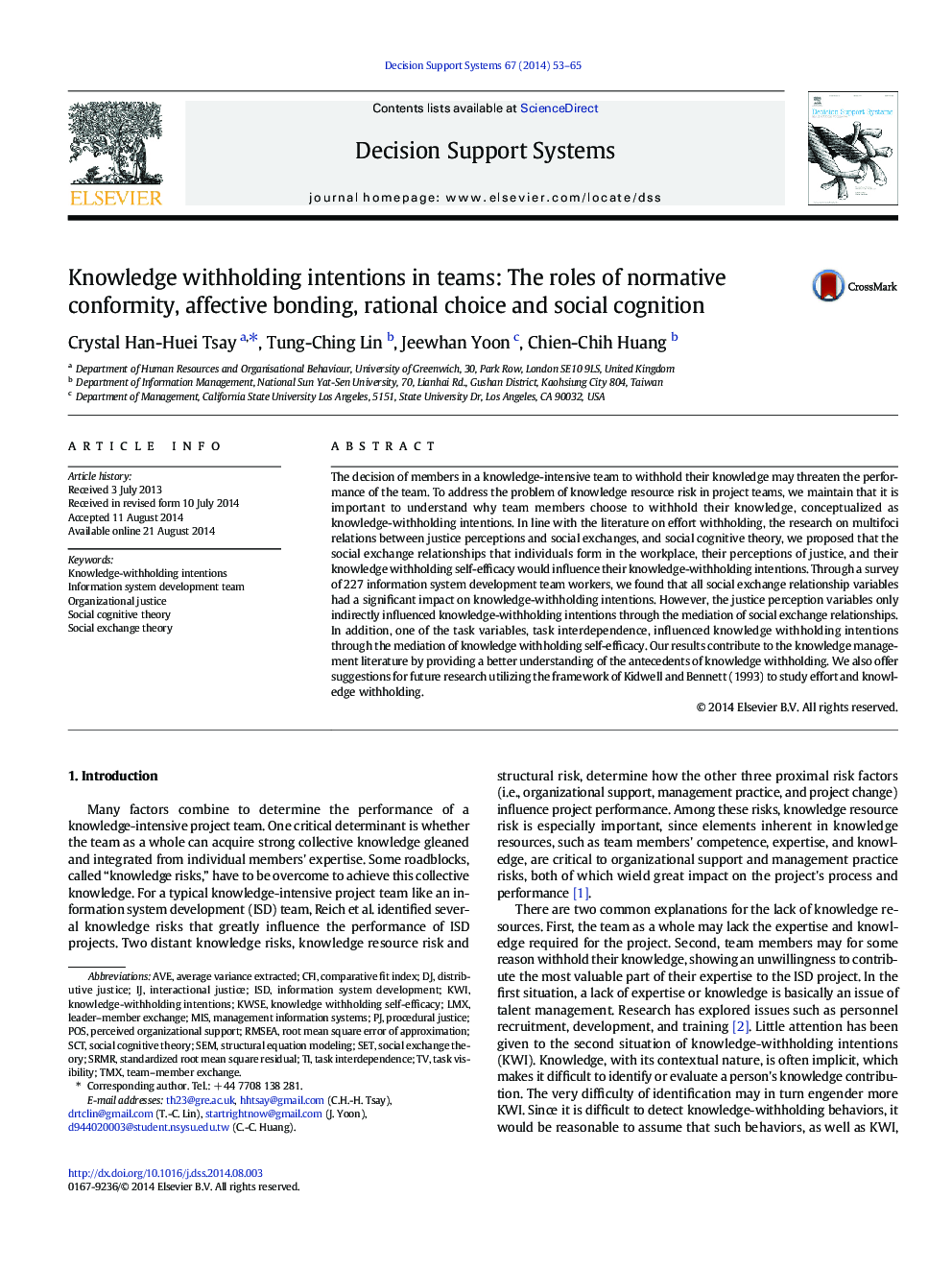| Article ID | Journal | Published Year | Pages | File Type |
|---|---|---|---|---|
| 6948536 | Decision Support Systems | 2014 | 13 Pages |
Abstract
The decision of members in a knowledge-intensive team to withhold their knowledge may threaten the performance of the team. To address the problem of knowledge resource risk in project teams, we maintain that it is important to understand why team members choose to withhold their knowledge, conceptualized as knowledge-withholding intentions. In line with the literature on effort withholding, the research on multifoci relations between justice perceptions and social exchanges, and social cognitive theory, we proposed that the social exchange relationships that individuals form in the workplace, their perceptions of justice, and their knowledge withholding self-efficacy would influence their knowledge-withholding intentions. Through a survey of 227 information system development team workers, we found that all social exchange relationship variables had a significant impact on knowledge-withholding intentions. However, the justice perception variables only indirectly influenced knowledge-withholding intentions through the mediation of social exchange relationships. In addition, one of the task variables, task interdependence, influenced knowledge withholding intentions through the mediation of knowledge withholding self-efficacy. Our results contribute to the knowledge management literature by providing a better understanding of the antecedents of knowledge withholding. We also offer suggestions for future research utilizing the framework of Kidwell and Bennett (1993) to study effort and knowledge withholding.
Keywords
SRMRLMXRMSEAISDTMXAVECFIScTLeader–member exchangeSETInformation system developmentStandardized root mean square residualRoot mean square error of approximationManagement information systemsComparative Fit IndexInteractional justiceDistributive justiceProcedural justiceOrganizational justiceSEMStructural equation modelingAverage Variance ExtractedSocial exchange theorySocial cognitive theoryTask interdependenceposPerceived organizational supportmis
Related Topics
Physical Sciences and Engineering
Computer Science
Information Systems
Authors
Crystal Han-Huei Tsay, Tung-Ching Lin, Jeewhan Yoon, Chien-Chih Huang,
